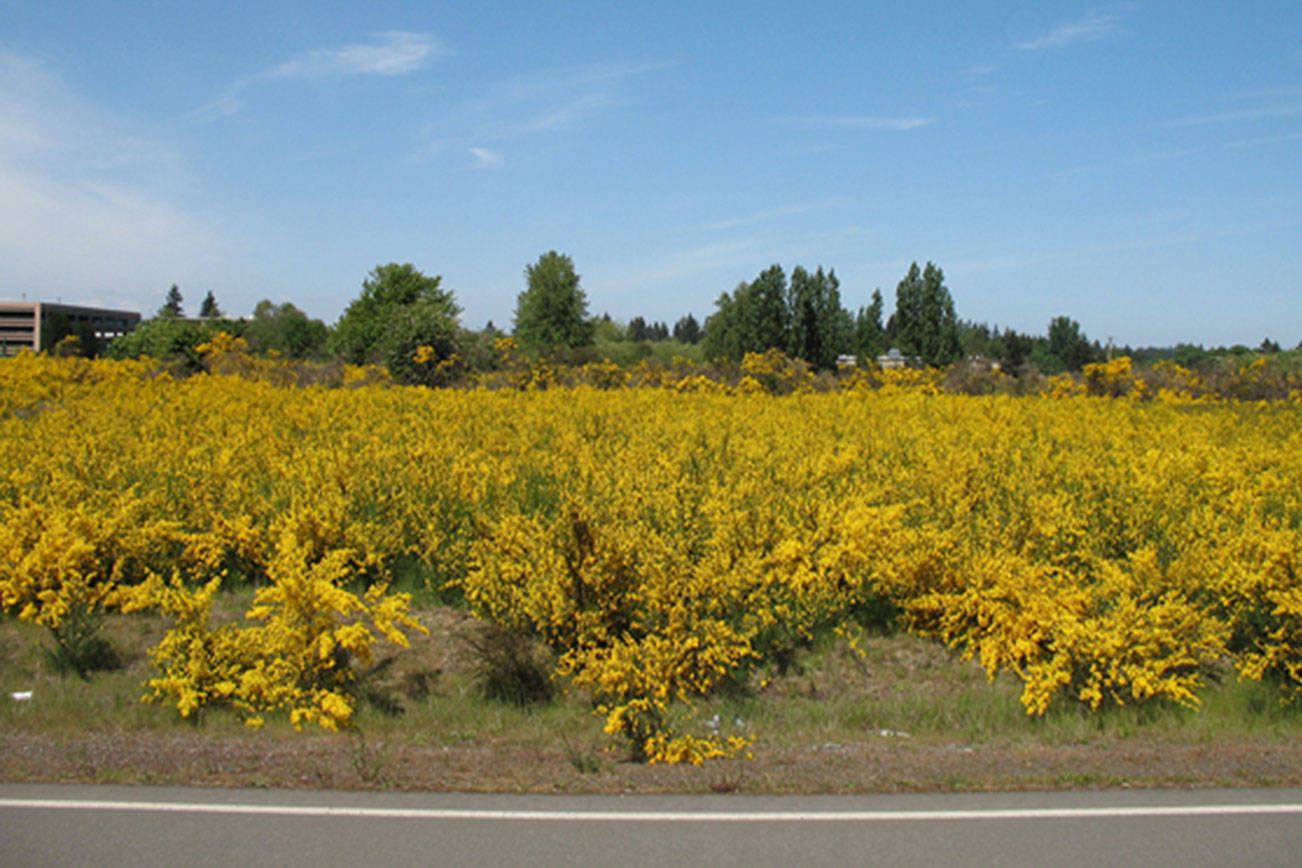Submitted by the San Juan County Noxious Weed Control Program
In partnership with the Washington Invasive Species Council, Gov. Jay Inslee signed a proclamation recognizing the week of Feb. 24 as Invasive Species Awareness Week in Washington state.
“We are fortunate to live in a state filled with natural beauty and abundant natural resources,” Inslee said. “To keep it that way, we all must do our part to prevent harmful plants and animals not found in Washington from settling here. Nationally, invasive species pose a $137 billion threat to crops, wildlife and forests.”
The week included opportunities for people to learn how to prevent the spread of invasive plants and animals in their everyday lives. For example, people are encouraged to clean their boats and other equipment before going to a new lake or river, and to buy firewood close to where they’ll burn it. Families can learn how to find new homes for unwanted pets rather than letting them loose outdoors.
“In Washington, people spend an estimated $26 billion on outdoor recreation, which puts nearly 200,000 people to work in living-wage jobs every year,” said Kaleen Cottingham, director of the Washington State Recreation and Conservation Office, which houses the Washington Invasive Species Council. “As an organization that invests in the outdoors, we know the risk invasive species pose to our environment and the communities that depend on it. That’s why this week is important. We hope more people will understand what’s at stake and will join the hundreds of other folks in doing their part to prevent the spread of invasive species.”
Washington state has a comprehensive strategy for dealing with dozens of invasive plants and animals, including an aggressive prevention effort.
“As the agency primarily responsible for ensuring healthy fish, wildlife and habitat for Washington, we need to stop aquatic invasive species with the help of people and partners around the state,” said Kelly Susewind, director of the Washington Department of Fish and Wildlife. “Prevention is less expensive and far more effective than trying to remove invasive species once they arrive.
“Our partners, including the Washington Invasive Species Council, among others, are helping to ensure harmful critters don’t get into our waters. WDFW stations for boat inspection and decontamination around Washington have found and stopped quagga and zebra mussels, which could cause more than $100 million in damage and management costs to our dams and water facilities if they ever become established.”
“Washington state benefits from well-managed, resilient forests that create natural resources and recreation jobs, wildlife habitat and clean water,” said Hilary Franz, public lands commissioner. “Invasive species such as gypsy moths and emerald ash borers can decimate those forests. Healthy forests support healthy communities, and we should all do our part to protect both.”
“Invasive species threaten almost half of native species listed as federally endangered, including salmon,” said Guy Norman, member of the Northwest Power and Conservation Council. “Northern pike are an invasive fish right on the border of vital salmon spawning habitat. If we don’t stop their spread, it would be devastating to our endangered salmon and the species that depend upon them, like orca whales.”
People can take simple actions to help prevent the introduction and spread of noxious weeds and other invasive species by doing the following:
• Before venturing outdoors, clean hiking boots, bikes, waders, boats and trailers, off-road vehicles and other gear to stop invasive species from hitching a ride to a new location.
• Watch for noxious weeds. Visit the Washington State Noxious Weed Control Board’s website to learn about noxious weeds.
• Download the app to report sightings of invasive species.
• Don’t dump unwanted pets, aquarium plants or water, science kits into waterways.
• Campers should buy firewood where they’ll burn it, or gather it on site when permitted.
• Use weed-free certified forage, hay or mulch.
• Plant only noninvasive plants in your garden.
• Volunteer to survey public lands and trails as a Citizen Science Invasive Plant Monitor with the Pacific Northwest Invasive Plant Council.
• Become a Washington State University master gardener and help identify, report and properly manage exotic and invasive pests.



